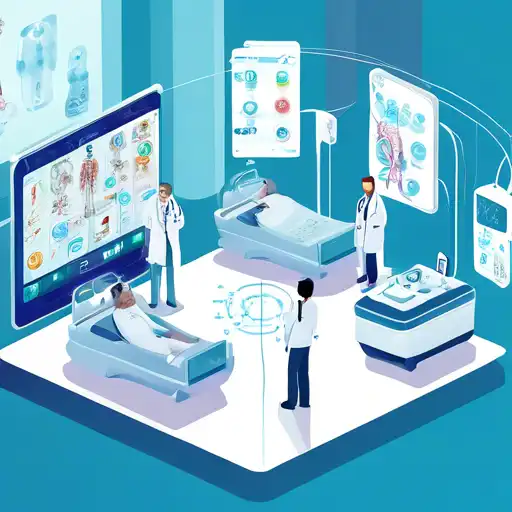Introduction to IoT in Healthcare
The integration of the Internet of Things (IoT) into healthcare is transforming the industry in unprecedented ways. By enabling real-time monitoring, personalized treatment plans, and improved patient outcomes, IoT technologies are setting new standards in healthcare delivery.
How IoT is Changing Healthcare
IoT devices, such as wearable health monitors and smart medical devices, are making it easier for healthcare providers to collect and analyze patient data. This not only enhances the accuracy of diagnoses but also allows for more personalized and timely interventions.
Benefits of IoT in Healthcare
- Improved Patient Monitoring: Continuous monitoring of patients' vital signs can alert healthcare providers to potential health issues before they become critical.
- Enhanced Efficiency: IoT devices automate many routine tasks, freeing up healthcare professionals to focus on more complex patient care needs.
- Reduced Healthcare Costs: By preventing hospital readmissions and enabling remote monitoring, IoT can significantly lower healthcare expenses.
- Better Patient Engagement: Patients can take an active role in managing their health through access to their own health data via IoT devices.
Challenges and Considerations
Despite its benefits, the adoption of IoT in healthcare comes with challenges, including data security concerns, the need for interoperability among devices, and the potential for overwhelming healthcare providers with too much data.
Future of IoT in Healthcare
The future of IoT in healthcare looks promising, with advancements in AI and machine learning further enhancing the capabilities of IoT devices. As technology continues to evolve, we can expect even more innovative solutions to emerge, making healthcare more accessible, efficient, and personalized.
For more insights into how technology is shaping the future of healthcare, explore our HealthTech Innovations section.
Conclusion
IoT in healthcare is indeed a game changer, offering numerous benefits that improve patient care, reduce costs, and enhance the efficiency of healthcare delivery. However, addressing the challenges associated with its implementation will be crucial for maximizing its potential. As we move forward, the continued integration of IoT technologies promises to revolutionize the healthcare industry even further.
